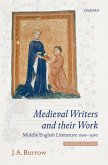How do genres develop? In what ways do they reflect changing political and cultural trends? What do they tell us about the motivations of publishers and readers? Combining close readings and formal analysis with a sociology of literary institutions and markets, Minor Characters Have Their Day offers a compelling new approach to genre study and contemporary fiction. Focusing on the booming genre of books that transform minor characters from canonical literary texts into the protagonists of new works, Jeremy Rosen makes broader claims about the state of contemporary fiction, the strategies of the publishing industry over recent decades, and the function of literary characters.
Rosen traces the recent surge in "minor-character elaboration" to the late 1960s and works such as Jean Rhys's Wide Sargasso Sea and Tom Stoppard's Rosencrantz and Guildenstern Are Dead. These early examples often recover the voices of marginalized individuals and groups. As the genre has exploded between the 1980s and the present, with novels about Ahab's wife, Huck Finn's father, and Mr. Dalloway, it has begun to embody the neoliberal commitments of subjective experience, individual expression, and agency. Eventually, large-scale publishers capitalized on the genre as a way to appeal to educated audiences aware of the prestige of the classics and to draw in identity-based niche markets. Rosen's conclusion ties the understudied evolution of minor-character elaboration to the theory of literary character.
Rosen traces the recent surge in "minor-character elaboration" to the late 1960s and works such as Jean Rhys's Wide Sargasso Sea and Tom Stoppard's Rosencrantz and Guildenstern Are Dead. These early examples often recover the voices of marginalized individuals and groups. As the genre has exploded between the 1980s and the present, with novels about Ahab's wife, Huck Finn's father, and Mr. Dalloway, it has begun to embody the neoliberal commitments of subjective experience, individual expression, and agency. Eventually, large-scale publishers capitalized on the genre as a way to appeal to educated audiences aware of the prestige of the classics and to draw in identity-based niche markets. Rosen's conclusion ties the understudied evolution of minor-character elaboration to the theory of literary character.
Dieser Download kann aus rechtlichen Gründen nur mit Rechnungsadresse in A, D ausgeliefert werden.









